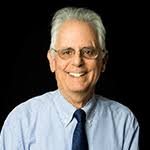By Sam Daley-Harris
A recent article in the New York Times discussed an emerging field of psychology that works to address the climate anxiety felt by people here and around the world. Over the last ten years, skepticism about the concept of climate anxiety has faded.
The article describes a mother with young children who would experience waves of anxiety and guilt walking down an aisle at Trader Joe’s. “Something as simple as nuts … They came wrapped in plastic, often in layers of it, that she imagined leaving her house and traveling to a landfill, where it would remain through her lifetime and the lifetime of her children.”
I heard similar cries for help while interviewing climate activists a decade ago. One young mother described her experience as ‘climate trauma.’

“I went to my local library and got Bill McKibben’s book Eaarth,” she told me. “I read it and wept. I was weeping at work and at home, constantly crying.”
One of the tools she adopted as an antidote to her climate anxiety was taking action. She joined an organization that supports effective group action on climate change. After only 18 months as a volunteer, she co-led a workshop on building relationships with members of Congress and editorial writers.
“During our conference in 2012, I met with 20 congressional offices,” she told workshop participants. “I met with many folks whose view of the world was very different than mine. Going into their offices was hard. I had to let go of a lot of emotional baggage. I could no longer judge them or hold hostility in my heart towards them. I had to let go of my fear of climate change and my fear that they wouldn’t listen to me. I had to center myself in love. Releasing fear and centering in love… this is sacred and profound work.”
That experience of transformational advocacy didn’t happen overnight and it didn’t happen alone. It shines a light on the role that effective group action can play for those suffering climate anxiety.
But any reference to taking action was missing from the Times article and, seemingly, from the therapeutic approaches used. Perhaps this was because the largely pointless actions that flood our in-boxes — like signing online petitions — aren’t the antidote to much of anything and can leave us still feeling isolated and anxious. Here is a useful framing for that anxiety.
Untamed author Glennon Doyle described her daughter’s inconsolable heartbreak after a kindergarten lesson about endangered polar bears. The other children were sad, but moved on. Doyle hoped her daughter would eventually do the same.
“One night, I’m putting her to bed,” Doyle recounted, “and she says, ‘Mommy, it’s just that it’s the polar bears now, but nobody cares. So soon it’s going to be us.’ And then she went to sleep, and I was just in the fetal position going, ‘Oh my God. The polar bears.’ I’m looking at my daughter and I’m thinking, ‘You’re not crazy to be heartbroken about the polar bears, the rest of us are crazy not to be.’
“This child is not broken,” Doyle continued, “she’s a prophet.”
The number of everyday prophets is growing. In a 10-country Lancet survey, 75 percent of young people ages 16 to 25 told researchers that “the future is frightening” and 56 percent said “humanity is doomed.”
Connecting with others who care and are taking courageous action can offer a hopeful antidote.
A new member of a climate action organization had never written, called or met with an elected official prior to his recent meetings with four state legislators.
“Climate restoration is the first issue that I have been motivated to actually work on,” he said recently, “because I believe it is the defining issue of our time.”
In one meeting with the chair of his state’s Environment and Energy Committee, he was surprised when the legislator admitted to knowing very little about carbon removal and welcomed a briefing.
“It was a bit mind-blowing to be providing a tutorial for the Environment and Energy Committee chair and his staff,” the activist told me, “given that our chapter is only a few months old.”
The lead therapist in the New York Times article describes reaching beyond standard treatments for anxiety, like cognitive behavioral therapy, to more obscure ones, like existential therapy. Perhaps the advocacy described above can be an additional healing approach.
Sam Daley-Harris (sam@empoweringcitizens365.org) is the founder of the anti-poverty lobby RESULTS and of Civic Courage and the author of “Reclaiming Our Democracy: Healing the Break between People and Government.”
Featured photo credit: Rob Jinks



